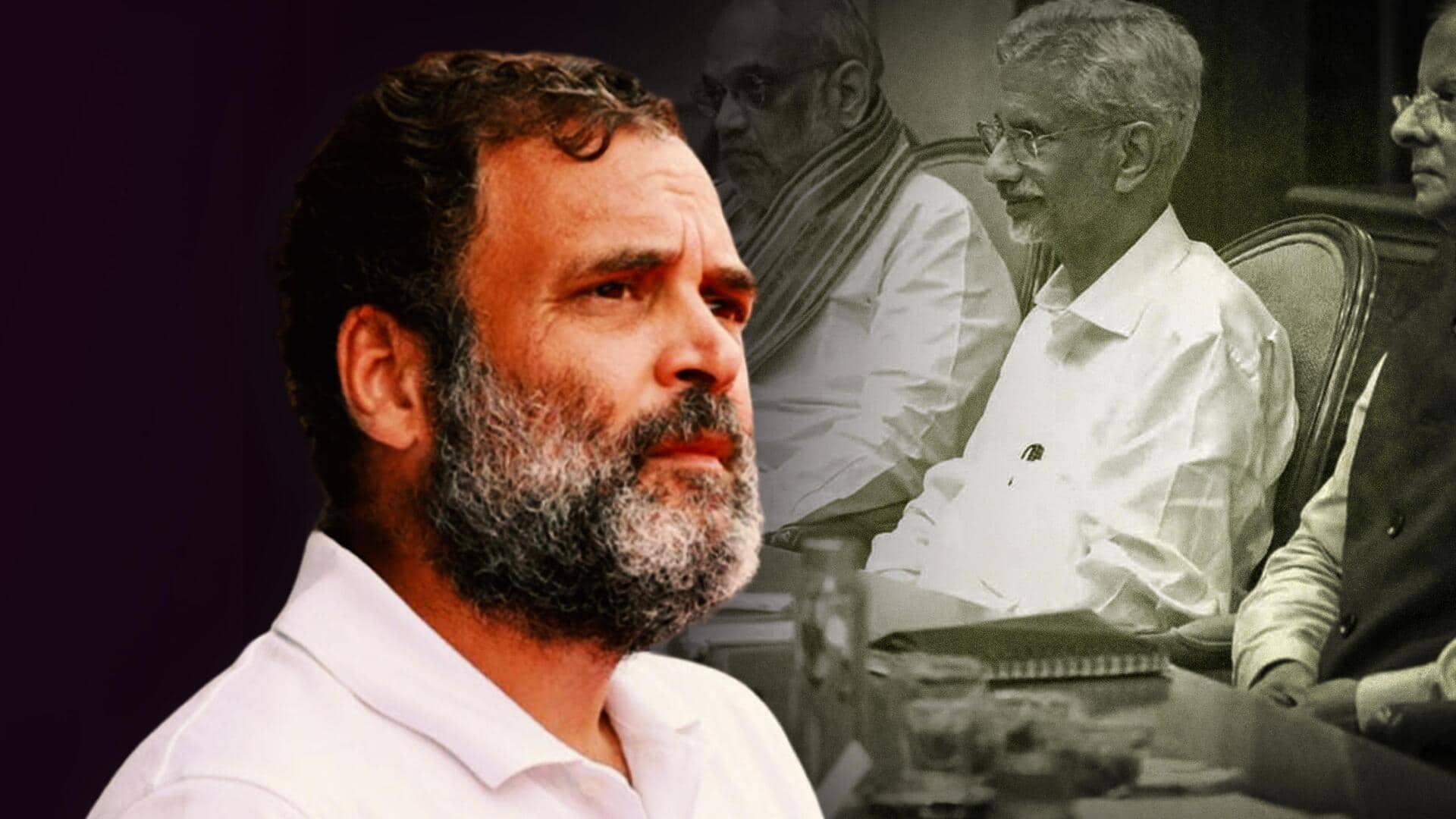
Bangladesh crisis: Rahul's 'Pakistan involvement' question to Centre, Jaishankar's reply
What's the story
At the all-party meeting held after the collapse of Sheikh Hasina's government and the military takeover in Bangladesh amid violent protests, Leader of Opposition Rahul Gandhi raised three key questions.
According to reports, Gandhi asked about the government's short-term and long-term strategies for handling the diplomatic consequences of the power shift in Dhaka.
The Congress leader also questioned the potential involvement of foreign powers, particularly Pakistan, in the recent developments that led to Hasina's ouster.
Context
Why does this story matter?
Hasina, the former Prime Minister of Bangladesh, fled the country after her resignation amid large scale protests by the student community in her country.
She arrived at Hindon Air Force base in Uttar Pradesh's Ghaziabad, 30km from Delhi, where she was received by National Security Advisor Ajit Doval.
Reports suggest that Hasina may seek political asylum in London.
Until the United Kingdom grants her request she is expected to stay in India.
Official response
Government's response to opposition's queries
The meeting was chaired by Foreign Minister S Jaishankar.
Responding to Gandhi's queries, the minister said that the situation in Bangladesh is still developing and the Centre is closely analyzing it to determine its next move.
In response to the LoP's question on foreign involvement, the Centre confirmed that it is investigating this possibility.
Reports said the government observed a Pakistani diplomat frequently changing his social media display picture to reflect the evolving situation in Bangladesh during the violent protests.
Meeting details
Meeting attendees and discussion on Bangladesh crisis
The meeting was attended by key leaders from various political parties and senior government officials, including Defence Minister Rajnath Singh and Home Minister Amit Shah.
The Centre briefed MPs from all parties about the crisis in Bangladesh and how it escalated to this point.
Gandhi also asked if New Delhi had anticipated the dramatic turn of events in Bangladesh, to which Jaishankar replied that India is monitoring the situation and is also in touch with the Bangladesh Army.
Safety concerns
Safety of Indian nationals and minority attacks in Bangladesh
Additionally, approximately 20,000 Indian nationals are currently in Bangladesh, with about 8,000 having returned.
The government is maintaining contact with them and the high commission is operational. The Centre is also tracking reports of attacks on minorities in Bangladesh.
After the meeting, Jaishankar put out a post on X, appreciating the opposition's unanimous support.
"Briefed an All-Party meeting in Parliament today about the ongoing developments in Bangladesh. Appreciate the unanimous support and understanding that was extended," he said.
Twitter Post
Read: Jaishankar's post here
Briefed an All-Party meeting in Parliament today about the ongoing developments in Bangladesh.
— Dr. S. Jaishankar (@DrSJaishankar) August 6, 2024
Appreciate the unanimous support and understanding that was extended. pic.twitter.com/tiitk5M5zn
Background
Bangaldesh political unrest
The student protest—ongoing since July—began with calls to abolish civil service job quotas but has since evolved into a broader anti-government movement.
The protests in Bangladesh are rooted in a contentious quota system that allocates up to 30% of government jobs to the relatives of veterans from Bangladesh's 1971 independence war.
Protesters argue that this system is discriminatory and favors former PM Hasina's Awami League party, calling for a merit-based system instead.